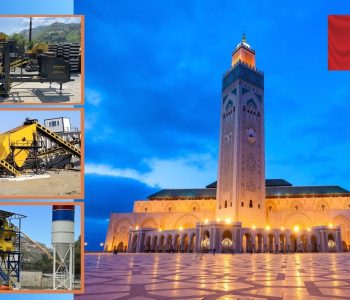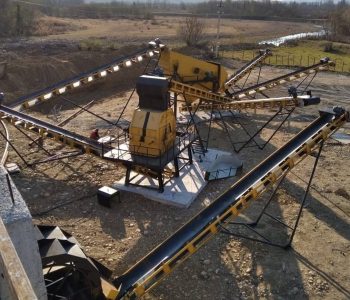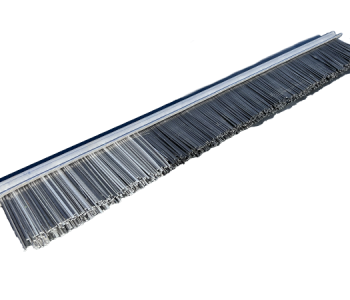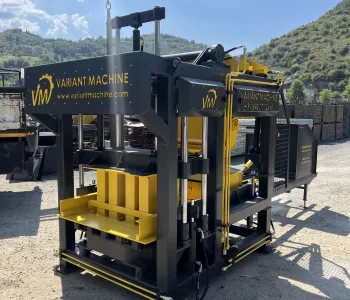Concrete Block Types and Their Pricing in Africa
Introduction
In Africa, the construction sector is experiencing rapid growth, driven by urbanization and infrastructure development across the continent. Concrete blocks are essential building materials, known for their durability and versatility. This article explores the various types of concrete blocks used in Africa, their pricing dynamics, and how these factors impact the construction industry in different African countries.
Common Types of Concrete Blocks in Africa
- Solid Bricks: Solid bricks are a traditional choice in many African countries due to their strength and durability. They are typically made from a mix of cement, aggregate, and sand, creating a robust material suitable for load-bearing walls and structural elements. Countries such as Nigeria, Kenya, and South Africa frequently use solid bricks for residential and commercial construction.
- Hollow Blocks: Hollow blocks are among the most popular types of concrete blocks in Africa. They are designed with voids or hollows in the center, which reduce the weight of the blocks and improve thermal insulation. This makes them ideal for both residential and commercial buildings. Hollow blocks are widely used in Ghana, Uganda, and Tanzania due to their cost-effectiveness and energy efficiency.
- Hollow Floor Blocks: Hollow floor blocks, also known as concrete floor slabs, are used to create floors and ceilings in multi-story buildings. These blocks are designed to support heavy loads while providing thermal insulation and soundproofing. They are particularly common in countries like Egypt and Morocco, where urban development includes high-rise and multi-story construction.
- Paver Blocks: Concrete paver blocks are utilized for external surfaces such as driveways, walkways, and roadways. They are known for their durability and aesthetic appeal, available in various shapes, sizes, and colors. Paver blocks are popular in urban centers across South Africa, Kenya, and Nigeria, enhancing both functionality and visual appeal of public and private spaces.
Factors Affecting Concrete Block Pricing in Africa
- Raw Materials: The cost of concrete blocks is significantly influenced by the price of raw materials such as aggregate, cement, and sand. Variations in the availability and cost of these materials across different regions can lead to fluctuations in block prices. For instance, countries with abundant natural resources may have lower material costs, affecting the overall pricing of concrete blocks.
- Production Technology: The type of machine used for block production impacts pricing. Concrete block machines range from manual to semi-automatic and fully automatic systems:
- Manual Machines: These are the least expensive and suitable for small-scale operations but require significant manual labor. They are commonly used in areas with lower construction demands.
- Semi-Automatic Machines: Offering a balance between cost and efficiency, these machines reduce manual labor and increase productivity, making them ideal for medium-sized projects.
- Fully Automatic Machines: These are the most costly but provide high efficiency by automating the entire production process. They are best suited for large-scale construction projects and are prevalent in more industrialized regions.
- Labor Costs: Labor costs vary widely across Africa and influence the overall cost of concrete blocks. In countries with lower labor costs, block production can be more economical, while in regions with higher labor expenses, prices may be higher.
- Transportation and Logistics: The cost of transporting raw materials and finished blocks affects pricing, especially in landlocked countries or regions with limited infrastructure. Transportation costs can add significantly to the final price of concrete blocks, impacting affordability and availability.
Regional Pricing Dynamics
Nigeria: In Nigeria, concrete block pricing is affected by factors such as raw material availability and labor costs. Solid bricks and hollow blocks are widely used, with prices influenced by regional variations in material costs and production methods. The growing demand for concrete blocks due to urbanization drives market dynamics in the country.
Kenya: Kenya’s construction industry benefits from a variety of concrete blocks, including hollow blocks and paver variations. Pricing is influenced by the cost of raw materials and advancements in production technology. The country’s expanding urban areas contribute to the demand for different types of blocks.
South Africa: South Africa has a well-established market for concrete blocks, including solid bricks, hollow blocks, and paver blocks. Pricing in South Africa is affected by factors such as technological advancements in production and the cost of raw materials. The country’s advanced infrastructure supports efficient block production and distribution.
Ghana: In Ghana, hollow blocks and paver blocks are popular due to their cost-effectiveness and suitability for various construction applications. Pricing is influenced by the availability of raw materials and transportation costs. The growing urbanization in Ghana increases the demand for concrete blocks.
Egypt: Egypt’s construction sector relies heavily on concrete blocks, including hollow floor blocks and paver blocks. The pricing of these blocks is influenced by raw material costs and production technology. Egypt’s well-developed infrastructure supports efficient block production and distribution.
Conclusion
Concrete blocks are a cornerstone of Africa’s construction industry, offering a range of types including solid bricks, hollow blocks, hollow floor blocks, and paver blocks. Each type has specific applications and pricing considerations that vary by region. Factors such as raw material costs, production technology, labor expenses, and transportation influence the pricing of concrete blocks across different African countries. By understanding these dynamics, stakeholders can make informed decisions that support effective project planning and contribute to the growth and development of Africa’s infrastructure.



